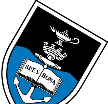As today marks a full year since the signing of the “Agreement with the SRC Candidates/Shackville TRC and other student formations” (“the agreement”), contemplation of the contours of the agreement, implementation thereof, and the implications for UCT’s future appear to be in order.
The impetus to the negotiations that produced the agreement was that most UCT operations in late 2016 had been shut down by violent protests by a small group of disaffected “students”. Completion of the academic year was in peril, and VC Dr. Max Price elected to “engage” intensively with a number of students, all of whom had been involved, in one way or another, with the protests, and most of whom had been disciplined by the university, and/or had multiple criminal charges pending against them.
The negotiations spanned several weeks, culminating in The Agreement. During this period, the university remained shuttered, a consequence of which was that UCT was the only South Africa university that failed to complete the academic year in time, if at all in several departments.
From the outset, questions about the legitimacy of the negotiations, and the subsequent Agreement, were raised. Reference to “other student formations” was felt to be fundamentally flawed in that the only (student ) parties to the negotiations and Agreement were violent, law-breaking individuals. Neither the then-current SRC, nor any other legitimate student groups ( or “formations”, as Price repeatedly referreds to them ) were consulted. The student members of the team were, in effect, wholly unrepresentative of the wider student body.
Another concern was that the negotiations were held in secret, this veil being lifted only with publication of the signed Agreement.
Price also not only supported, but actively advanced, the granting of bail to a particularly, (and repeatedly) violent demonstrator who was in police custody pending criminal charges of a serious nature. This individual was a member of the negotiating team, and signatory to The Agreement.
The cornerstone of the agreement is the establishment of an Institutional Reconciliation and Transformation Commission (IRTC). In order to constitute this commission, a Steering Committee ( SC ) was established in January.
The SC’s mandate is to draft provisional terms of reference for the IRTC, establish criteria for the selection of Commissioners, elect Commissioners, and provide a timeframe for the work of the IRTC.
It is chaired by Sipho Pityana (Chair of the University Council ), and represents a wide spectrum of the university community, although there appears to be significant weighting in favour of “Fallist” students.
The SC’s first meeting was held on January 26, the most recent October 31 (GroundUp 3rd November 2017) Five meetings have been held, as well as a “facilitated” workshop (20th May 2017).
Examination of meeting minutes, and report-backs by Mr. Pityana, and some delegates to their constituencies (and inter se), reveal a disturbing picture. While initially, all agreed that the SC’s brief was critical to the successful implementation of The Agreement, and that consensus building would prevail, later, cracks begin to appear in the façade of unity of purpose and amity of proceedings.
A raft of complaints and recriminations surfaced, with deep divisions, primarily between the student delegates and others, becoming evident. These ranged from the absurd (alleged mispronunciation of delegates’ names ) to serious concerns about both procedural aspects of the Committee’s work, and confusion regarding the very nature of their task.
Student delegates were accused of arriving late for meetings, leaving early, or not pitching up at all, affecting universally recognized quorum standards for voting. Consequently, the voting that did occur with regard to the drafting of the terms of reference for the commission was thought by some to be fundamentally flawed in terms of quorum and voting percentages realized, not to mention the fact the vote took place at a “facilitated workshop”, not a meeting..
The most recent meeting of the Committee was held on Oct. 31, ostensibly to elect commissioners. Instead, a discussion on the presence of private security on campus—a question completely outside the remit of the Committee— ensued, and no vote was held. (Ground Up 3rd November 2017 )
And so, on the eve of the end of year examination period, there exists no agreement on who the commissioners to the IRTC will be, campus is yet again roiled by protests, with revolting and despicable acts of vandalism and exhibitionism, and most university functioning remains suspended. Many tests have been cancelled or disrupted, at least one final examination disrupted, and face to face teaching has, as it was last year, been suspended and replaced by so-called “blended learning” (although UCT is not a correspondence college, and “blended learning” is no substitute for face to face teaching). Even were final exams able to be completed under reasonable conditions (an increasingly unlikely possibility), the reality is that the 2017 academic year has already been severely compromised. Catering services for residences remain suspended, and, once again, private security and riot police are on campus ( at least this year, unlike last, the community doesn’t have to listen to ultra-left faculty whining about the “securitization” of UCT ).
It is clear that, as of now, the IRTC, as envisioned by The Agreement, will not be constituted any time soon, if at all, and campus has once again plunged into uncontrollable chaos.
The wisdom of a policy of appeasement in dealing with those bent on the destruction of UCT must be questioned, and those responsible (Price, Senior Executive, and Council) for this demonstrably failed policy must be held accountable.
In conclusion, the “peace” that was hoped to be achieved through the agreement appears to be in tatters. Whether the 2016 agreement is wholly dead, or merely moribund, is a question that will be answered only in the fullness of time, but time appears to be running out, and with it, the very future of UCT as a credible and viable institution of higher learning.

